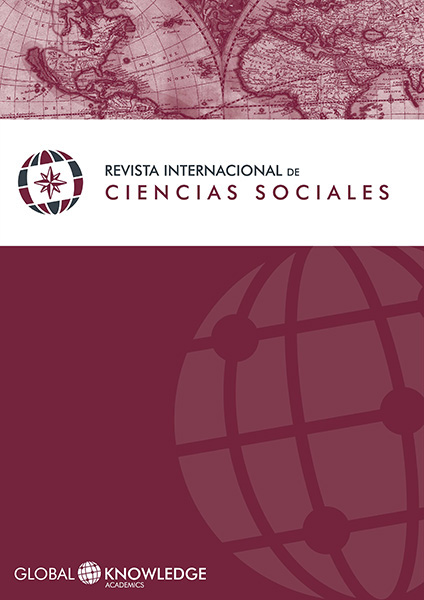Development of Local Marketing Plans in a Professional Context as a Mechanism of Learning Control
DOI:
https://doi.org/10.37467/gka-revsocial.v3.804Keywords:
Cooperative Learning, Learning by Projects, MarketingAbstract
The subjects of Basis of Marketing of the Degrees of Audiovisual Communication and Advertising and Public Relations at the Universitat Jaume I develop a practical project for the application of the concepts covered in class in a real and professional context focused on companies and institutions from the local context. The objectives and competences defined in this project were achieved satisfactorily, significantly improving the assimilation and understanding of concepts from the theoretical approach and strengthen the skills of the student such as team work, communication, critical thinking and problem resolution. The cooperative methodology in a professionalized context significantly increased motivation achieving effectively manage the transmission of knowledge from the classroom to the real world.
Downloads
Global Statistics ℹ️
|
601
Views
|
178
Downloads
|
|
779
Total
|
|
References
Baena, V. (2010). “Innovación docente e identificación de inhibidores del aprendizaje en el área de empresa. Una propuesta metodológica”. Espiral-Cuadernos del Profesorado 3(6): 3-14. DOI: https://doi.org/10.25115/ecp.v3i6.906
Baena, V. y Padilla, V. (2012). “Refuerzo y desarrollo de competencias mediante la elaboración de una campaña real de marketing: la Fórmula UEM”. Revista de Docencia Universitaria. REDU 10(1): 199-214. DOI: https://doi.org/10.4995/redu.2012.6128
Blumenfeld, P.C.; Soloway, E.; Marx, R.W.; Krajcik, J.S.; Guzdial, M. y Palincsar, A. (1991). “Motivating project-based learding: Sustaining the doing, supporting the learning”. Educational Psychologist, 26(3, 4): 369-398. DOI: https://doi.org/10.1080/00461520.1991.9653139
Campos, E. y Campos, E. (2010). “¿Competencias básicas?”. Espiral-Cuadernos de Profesorado 3 (5): 73-76. DOI: https://doi.org/10.25115/ecp.v3i6.912
Cano, M.E. (2008). La evaluación por competencias en la educación superior . Universitat de Barcelona. Disponible en línea: http://www.ugr.es/local/recfpro7rev123COL1.pdf. Última fecha de acceso: 4 de mayo 2010.
De Juan, M.D.; González, E.; Parra, J.F.; Kanther, A. y Sarabia, F.J. (2008). “Antecedentes del aprendizaje autorregulado del estudiante universitario de marketing”. Actas del XX Encuentro de Profesores Universitarios de Marketing, 17-19 de septiembre de 2008, Gran Canaria.
Espinosa, J.; Jiménez, J.; Olabe, M. y Basogain, Y. (2006). Innovación docente para el desarrollo de competencias en el EEES . Universidad del País Vasco. Disponible en la web: http://campus.usual.es/ofees/ARTICULOS/p216.pdf. Última fecha de acceso: 30 de mayo 2011.
García, A.J. y Troyano, Y. (2010). “Aprendizaje cooperativo en personas mayores universitarias”. Revista Interamericana de Educación de Adultos 32(1): 1-15.
Gil, C.; Alías, A.; Montoya, M.D.G. (2006). “Cómo mezclar diferentes metodologías docentes para motivar e impulsar a un mayor número de alumnos”. VI Jornadas de Aprendizaje Cooperativo, Barcelona.
González, N. y García, Mª. R. (2007). “El aprendizaje cooperativo como estrategia de enseñanzaaprendizaje en Psicopedagogía (UC): repercusiones y valoraciones de estudiantes”. Revista Iberoamericana de Educación, 42 (6): 1-13.
Hernández, F. (1996). “Representar la función de la Escuela desde los proyectos de trabajo”. Revista Pedagógica 6: 26-31.
Johnson, D.W. y Johnson, R.T. (1989). “Cooperative learning: What special education teachers needs to know”. Pointer 33 (2): 5-10. DOI: https://doi.org/10.1080/05544246.1989.9945370
Martinez, J.R. y Galán, F. (2000). “Estrategias de aprendizaje, motivación y rendimiento académico en alumnos universitarios”. Revista Española de Orientación y Psicopedagogía 11(19): 35-50. DOI: https://doi.org/10.5944/reop.vol.11.num.19.2000.11323
Ministerio de Educación, Cultura y Deporte (2003). La integración del sistema universitario español en el Espacio Europeo de la Educación Superior . Documento Marco. Madrid.
Polanco, A. (2005). “La motivación en los estudiantes universitarios”. Actualidades Investigativas en Educación 5(2): 1-13.
Downloads
Published
How to Cite
Issue
Section
License
Those authors who publish in this journal accept the following terms:
-
Authors retain copyright.
-
Authors transfer to the journal the right of first publication. The journal also owns the publishing rights.
-
All published contents are governed by an Attribution-NoDerivatives 4.0 International License.
Access the informative version and legal text of the license. By virtue of this, third parties are allowed to use what is published as long as they mention the authorship of the work and the first publication in this journal. If you transform the material, you may not distribute the modified work. -
Authors may make other independent and additional contractual arrangements for non-exclusive distribution of the version of the article published in this journal (e.g., inclusion in an institutional repository or publication in a book) as long as they clearly indicate that the work was first published in this journal.
- Authors are allowed and recommended to publish their work on the Internet (for example on institutional and personal websites), following the publication of, and referencing the journal, as this could lead to constructive exchanges and a more extensive and quick circulation of published works (see The Effect of Open Access).













